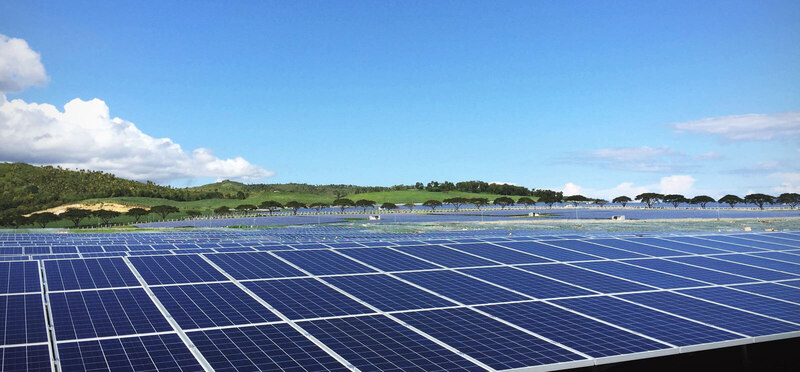SUSTAINABILITY, has since the early part of the 2000s, moved from being just a buzzword to a goal for many individuals, organizations and enterprises. Though some companies may not agree to it, sustainability is a business case study. It has far reaching impact, because protecting the planet, also means finding ways to end poverty, equitably sharing resources to ensure prosperity for all. In a way, real profitability rests in sustainable business practices.
To its credit, Earth Day, which started 53 years ago by an environmentalist, Denis Hayes, and U.S. Senator Gaylord Nelson of Wisconsin, helped bring an awareness about protecting the planet. Nelson, concerned about the effects of air and water pollution on the environment, as well as the poisoning of the top soil due to pesticides proposed legislation creating a national day to focus on environmental issues. In 1969, he pushed his idea in the American Senate, and held the first Earth Day rally in New York City, on April 22, 1970.

Earlier, in September 1962, author Rachel Carson published ‘Silent Spring’ a book that documented the environmental harm caused by the indiscriminate use of pesticides, particularly DDT. The book outlined how the chemical industry was spreading lies about the effects of DDT to the environment, poisoning water tables and killing farm animals and humans. Carson accused public officials of not acting correctly and promptly to the effects of pesticides and simply “accepting the industry’s marketing claims unquestioningly.” The book was said to start the tide of environmentalism, bringing forward
Earth Day has become a such global event that brings people together from all over the world to address the pressing issues of climate change, pollution, and the depletion of natural resources. More than the amassing of people and the call for environmentalism, the real success of the first Earth Day can be measured, by the level of awareness by the how policymakers and government are paying attention to the preserving the planet.
In the US, Earth Day is responsible for the setting up of the United States Environmental Protection Agency (EPA) and the passage of several landmark environmental laws, including the Clean Air Act, the Clean Water Act, and the Endangered Species Act.
It also had a significant impact on the creation and signing of the ‘Paris Agreement,’ a landmark international treaty aimed at limiting global warming to well below 2 degrees Celsius above pre-industrial levels, was signed by 195 countries in 2015. The celebration played a key role in building public support for the agreement and raising awareness about the urgent need to combat climate change.
Sustainability as a business goal
Enterprises have an important role to play in promoting sustainability and reducing their environmental impact. To set a goal in business, a case study needs to be prepared.
Implementing sustainable practices in their operations, such as reducing energy and water usage, minimizing waste, using environmentally friendly materials and investing in green technologies and practices that reduce their carbon footprint result in sustainable development.
By supporting policies that encourage the development of renewable energy and raising awareness about environmental issues through marketing and advertising campaigns are but a few of the ways enterprises can elevate the advocacies of Earth Day to a higher level.
Since sustainability is a complex and multifaceted concept that can be measured in different ways, it will be unfair to pit companies with a culture of sustainability against each other. One way to assess a company’s sustainability is to look at its performance on environmental, social, and governance (ESG) metrics.
A techglomerate’s sustainability goals
Aboitiz Corp calls itself a techglomerate–and for a good reason. It is actively digitalizing every aspect of its business, in order to achieve is own sustainability goals. It seriously believes that innovation and digitalization are the best ways to improve its operational efficiency and effectiveness.

The company’s commitment to sustainability is clear to all its stakeholders. It has developed a working framework that focuses on three main areas: environmental stewardship, social responsibility, and economic prosperity.

Committed to creating a positive impact on the communities where it operates, the company has various programs to support education, health, and livelihood development. Additionally, the company promotes diversity and inclusion in its workforce and supports employee volunteerism. The final goal is to to create long-term value for its stakeholders, including customers, shareholders, and employees.
Environmental stewardship mostly rests in the hand of its subsidiary, AboitizPower.
AboitizPower is one of the largest power producers in the Philippines and has been expanding its renewable energy portfolio over the years. It has invested in various renewable energy sources, including hydro, geothermal, solar, and wind. As of 2022, the company has a total installed capacity of nearly 5,000 megawatts (MW), of which 42 percent is from renewable sources.
Developing new renewable energy projects resulted in the completion of a 69-MW solar power plant in Tarlac, last year. Within its own walls it promotes energy efficiency to reduce energy consumption and greenhouse gas emissions.
And as an advocate of a green economy, it supporting renewable energy policies that promote the development and use of renewable energy in the Philippines. The company works closely with government agencies, industry associations, and other stakeholders to promote sustainable energy policies.
The first Earth Day
The first Earth Day was a huge success, with 20 million Americans participating in events across the country. It marked the beginning of a new era of environmental activism, and helped to launch the modern environmental movement. In the years that followed, Earth Day continued to grow in popularity, and became an international event in 1990. Earth Day brought one phrase to the global vocabulary that resounds until today: climate change.

Earth Day raises the awareness about the climate change and encourages people to take action to reduce their carbon footprint. This can include things like using public transportation or biking instead of driving, eating less meat, and using energy-efficient appliances and lightbulbs.
Coloring enterprises green

The Ayala Corporation is a diversified conglomerate recognized as a leader in sustainability in the country. It has set targets to reduce its carbon footprint and water consumption and has invested in renewable energy projects. Several companies under its helm are either truly green-compliant were designed and built for sustainability.
Kia recently launched the EV6, while AC Industrials sealed a deal via its IMI facility to manufacture Zero electric motorcycles in Laguna. It has invested significantly in EV charging infrastructure through AC Infrastructure Holdings Corp. and has installed charging stations in various locations, including Ayala shopping malls, airports, and business districts.
Ayala’s target to develop 5,000 MW of renewable energy by 2025 includes investments in Vietnam and as of 2022, ACEN Corporation (formerly known as AC Energy) has an installed capacity of nearly 1,500 MW of renewable energy, including wind, solar, and hydro.

But it is the Ayala’s Bank of the Philippine Islands (BPI) that has made headway in the finance sector leading a high sustainability performance in recent years. The bank has set targets to reduce its carbon footprint, promote financial inclusion, and support sustainable development in the Philippines.
BPI has taken steps to reduce its environmental impact, implementing energy-saving measures in its branches and offices, such as installing energy-efficient lighting and air conditioning systems. BPI has also committed to reducing paper usage by promoting electronic banking services and implementing paperless processes.
Earth Day and food production
While it may not seem immediately obvious, the food business has a significant impact on the environment, and therefore, Earth Day is highly relevant to the food industry.
The food business is heavily dependent on agriculture, which can contribute to deforestation, soil erosion, water pollution, and greenhouse gas emissions. The food industry has a responsibility to promote sustainable agricultural practices that minimize environmental impact.
Fastfood restaurants are the most guilty for food waste: Food waste is a major environmental issue, with significant greenhouse gas emissions associated with the decomposition of food in landfills. The food industry has a responsibility to reduce food waste by implementing measures to prevent waste, such as better inventory management and product design, or as it is in France, donating excess food to food banks and charities.
Packaging waste, with single-use plastics is a particular concern. The industry has a responsibility to reduce packaging waste by using more sustainable materials and designing packaging that can be recycled or composted. Finally, the complex local and global supply chain that can have significant environmental impacts, including transportation-related emissions and deforestation.
Mondelēz environmental protection initiatives
Food maker Mondelēz International is committed to sustainability. It has in its corporate philosophy and goals a number of initiatives to reduce its environmental impact and promote social responsibility.
>Read related story here<

It starts with sustainable sourcing. Mondelēz PH is committed to sourcing its raw materials sustainably, including cocoa, palm oil, and wheat. The company works closely with its suppliers to ensure that they meet its sustainability standards, which include protecting forests, reducing greenhouse gas emissions, and promoting fair labor practices.
In the area of energy and water conservation has implemented various programs to reduce its energy and water consumption. For example, since 2010, the company has installed energy-efficient lighting and equipment in its manufacturing plants and offices, and has implemented water conservation measures.
Mondelēz has taken major steps in reducing its waste and increasing its recycling rates, including reducing packaging materials and implementing recycling programs for its employees.
But its greatest commitment to sustainability is its social responsibility practices. Committed to promoting social responsibility in the communities where it operates, it has launched various programs to support education, health, and livelihood development, including a program to provide snacks and nutrition education to school children.
Earth Day’s relevance, despite the 53 years that that brings attention to the urgent need to protect our planet. By raising awareness about environmental issues and encouraging individuals and businesses to take action, we can all work together to create a more sustainable future. While there is still much work to be done to address climate change and other environmental challenges, Earth Day serves as a reminder that we all have a part in keeping the planet alive and well.
READ MORE FROM THE EARTH DAY SUPPLEMENT HERE
Sustainability is older than you think

How Earth Day influenced UN’s agenda for sustainable development

The evils of greenwashing
By Sarah M. Gutierrez
The Petrobras scandal, also known as Operation Car Wash, was a corruption scandal involving the Brazilian oil and gas company Petrobras. The scandal began to unfold in 2014, when Brazilian authorities launched an investigation into allegations of bribery and money laundering at the company. This happened to cover up the company’s poor environmental track record, polluting ways and lack of social responsibility.
Later the company was accused of greenwashing for its advertising campaigns that promote its efforts to reduce greenhouse gas emissions. However, critics argue that the company’s overall business is still focused on fossil fuels, and that it has a poor track record when it comes to environmental and social responsibility.
Greenwashing is a marketing tactic that involves companies making false or misleading claims about the environmental benefits of their products or services. These claims are made to appeal to environmentally conscious consumers and increase sales, but they are often not backed up by real efforts to reduce environmental impact.
The evils of greenwashing are numerous.
First and foremost, it can mislead consumers into believing that they are making a positive environmental choice when they are not. This can lead to consumers feeling like they are doing their part for the environment when in reality they are not making any significant impact. This can lead to a false sense of security and a lack of urgency to make real changes.
Secondly, greenwashing can undermine the efforts of genuinely environmentally responsible companies. When companies engage in greenwashing, they are taking advantage of the hard work and dedication of other companies that are genuinely trying to reduce their environmental impact. This can create a situation where consumers become cynical about all claims of environmental responsibility, making it harder for genuinely responsible companies to get their message across.
Finally, greenwashing can lead to a lack of real action on environmental issues. If companies are able to simply make green claims without making any real changes, then they have no incentive to actually reduce their environmental impact. This can lead to a situation where companies continue to engage in environmentally harmful practices while giving the appearance of environmental responsibility.
Ways Earth Day is celebrated around the world

EARTH DAY is usually celebrated as a time to advocate for policies that support the transition to renewable energy and other sustainable practices. This can include things like supporting legislation that encourages the development of wind and solar power, or advocating for stricter regulations on polluting industries. By working together to push for these changes, we can help to create a more sustainable future for our planet. Here are some ways that Earth Day is celebrated globally.
Environmental cleanups are a common activity during Earth Day. These cleanups can take place in beaches, parks, and other public areas to remove trash and debris and promote cleaner environments. Many organizations and schools organize these cleanups, and volunteers are encouraged to participate.
Tree planting is another popular activity. It is an effective way to combat deforestation, which is one of the biggest environmental issues facing the country. Many organizations and schools organize tree planting activities, and individuals are encouraged to plant trees in their communities and homes.
Environmental education is an important component of Earth Day. Many organizations and schools organize educational programs to raise awareness about environmental issues and promote sustainable practices. These programs can include workshops, seminars, and exhibits.
Advocacy campaigns aimed at raising awareness about environmental issues and advocate for policies and practices that promote sustainable development. Many organizations and individuals use social media to spread their messages and promote their campaigns.
Sustainable markets are becoming more popular during Earth Day, especially in the Philippines. These markets feature products and services that promote sustainability, such as organic food, eco-friendly products, and renewable energy technologies. They provide an opportunity for individuals to learn about sustainable practices and support businesses that prioritize sustainability.
That being said, there have been many significant milestones in the global effort to reduce carbon emissions and combat climate change that have been influenced by Earth Day and related initiatives. For example:
Renewable energy sources, such as wind and solar power, have become increasingly popular in recent years, helping to reduce carbon emissions and combat climate change. Earth Day has played a significant role in promoting the development and adoption of renewable energy, helping to reduce greenhouse gas emissions and promote a more sustainable energy system.
Electric vehicles (EVs) are becoming more common, with many major automakers now offering electric or hybrid models. Earth Day has helped to promote the adoption of EVs by raising awareness about their benefits for the environment and public health, such as reduced air pollution and lower carbon emissions.
Sustainable agriculture practices, such as crop rotation, organic farming, and reducing fertilizer use, can help to reduce greenhouse gas emissions and promote a more sustainable food system. Earth Day has helped to raise awareness about the importance of sustainable agriculture and promote the adoption of these practices.





